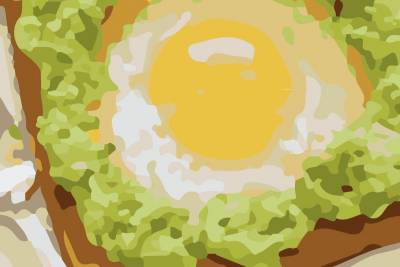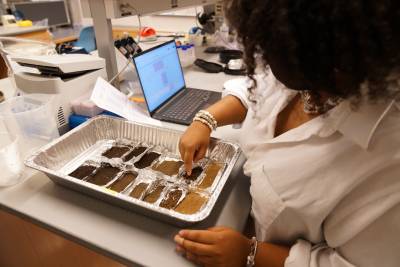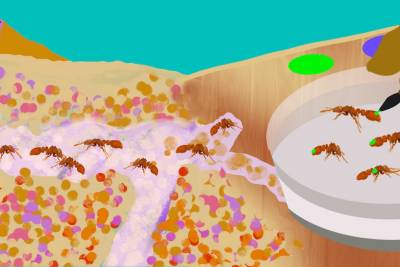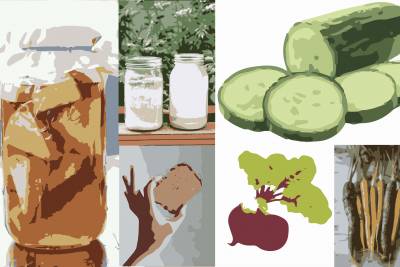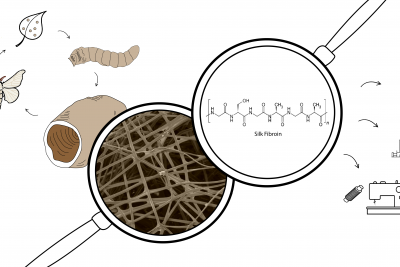Two-Minute Mayo
Mayonnaise is a great demonstration of an emulsion that students are likely to be familiar with.
If you can offer tastes to the participants, this would allow everyone to use even more of their senses as they compare textures and flavors of the individual ingredients versus the emulsified product. *Do note that this recipe includes raw egg so get your egg from a trusty source or buy a pasteurized egg and rinse before cooking if you’ll be tasting the product
Materials
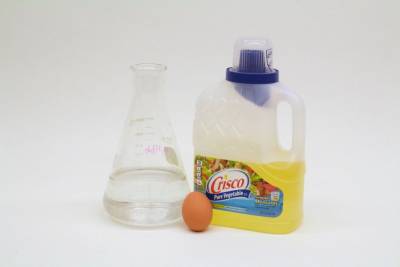
Ingredients
- 1 Whole Egg*
- 1 Cup of Vegetable Oil
- (Optional) Mustard
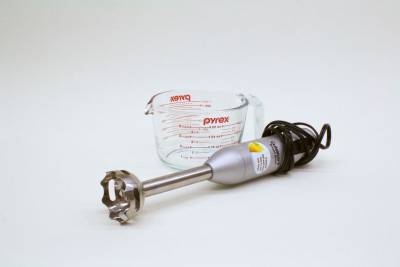
Equipment
- Hand blender
- A jar or glass just wider than the immersion blender head (we find a pint-sized wide-mouth ball jar works well)
Procedure
- Place egg and mustard in the jar.
- Pour oil on top and allow to settle for 15 seconds.
- Place head of blender at bottom of the jar and turn it on high speed. Do not pulse or move the head. Mix thoroughly for one minutes.
- You have a (tasteless) mayo!
Adapted from Serious Eats
Activity & Discussion
Predictions
1. What do you think will happen?
2. How will you know?
3. What factors will you observe during this demonstration about emulsions?
Observations
Record your observations in a chart, such as the example below:
| Before starting | While following the recipe | Final product | |
| Each Ingredient | |||
| Oil | |||
| Egg | |||
| Mustard | |||
| Factors to observe | |||
| Color | |||
| Smell | |||
| etc. from Q3 above |
Inference & Reflections
4. What surprised you? What did this make you wonder about?
5. What components were emulsified together?
6. What component(s) acted as the emulsifiers?
7. What observations informed your classifications from Qs 5 & 6?
8. Why do you think it’s important to let the oil settle for 15 seconds? What did you observe happening during that time?
9. How might this vary with/without mustard?
Going Deeper
This recipe was developed by J. Kenji Lopez-Alt for SeriousEats.com. In the recipe, he writes an extensive “why it works” section to explain some of his recipe decisions as they relate to the science of emulsions, of blending olive oil, and more. Read all about it in the link below:

